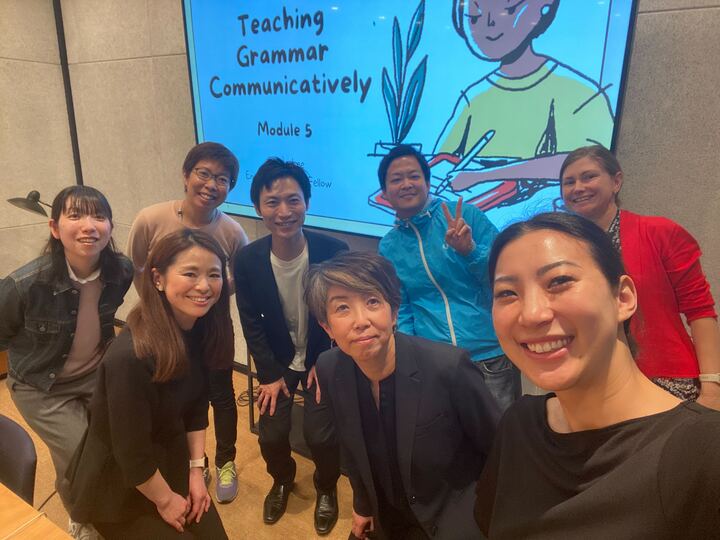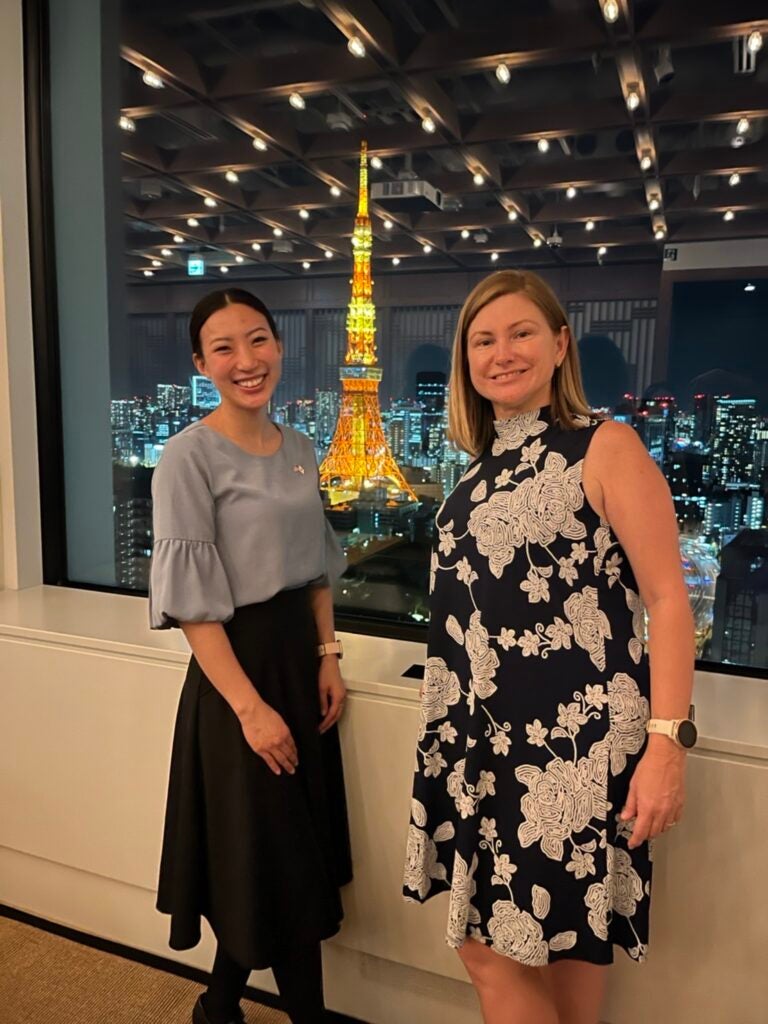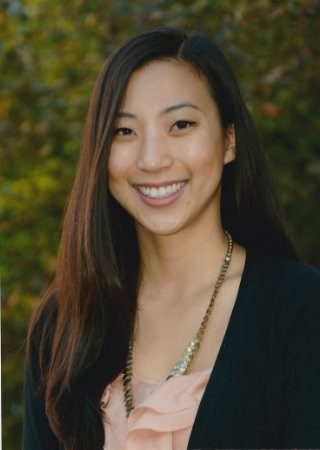I am always humbled and blown away by the commitment that these teachers show. They often come to workshops late in the evening or on Saturdays and are eager to learn despite having decades of experience. It always helps me strive to provide the best possible training for them and consider how I could support their learning.
After taking the subway through Tokyo, peering out the window to catch a glimpse of Mt. Fuji, and finally buying a vending machine coffee, English Language Fellow Claire Lee begins her day at the Tokyo Metropolitan Board of Education, providing teacher professional development for in-service Japanese teachers of English. Lee facilitates courses such as TESOL Methodology, Teaching Grammar Communicatively, and Assessment of English Language Learners (which she adapted from an OPEN course – an online professional development resource supported by the U.S. Department of State). Developing workshops for teachers throughout Japan is also a large part of her fellowship. The topics are wide-ranging, from Cultural Understanding and Diversity, Equity, Inclusion, Accessibility (DEIA) to Student-Centered Learning and Accessibility for English Language Learners.
Although English has been a core part of the Japanese curriculum for decades, Lee has observed that current classroom teaching still relies on grammar translation methods with few communicative teaching approaches. Despite gradual changes in recent years, many students still struggle on the national speaking exam. With over 2,000 teachers in her programs so far, Lee recognizes the wide reach of her project: “Supporting teachers will ultimately support students in being able to use English communicatively, opening up opportunities and allowing for exchange between Japan and the United States.
Two teachers who took Lee’s TESOL Methodology course and then implemented what they learned into their classes are now presenting at the Japanese Association for Language Teaching Conference on using authentic materials to learn and practice English. Lee has been mentoring them in preparation for their presentation, which has helped her see the effect of the training on their own teaching and their personal confidence as teachers of English.


Lee participates in many secondary projects throughout Japan such as leading a recent English for Law Enforcement and Cultural Understanding workshop for the Japanese National Police Academy and developing a Communicative Teaching webinar series. One ongoing project is the “Let’s Speak English!” conversation club that meets monthly online. Teachers from across the country discuss personal and cultural topics. These gatherings promote cultural understanding while providing an opportunity for participants to practice English in an authentic setting. Lee shares American culture through these meetings by choosing a theme related to the month such as holiday traditions or Pride month. It’s through these discussions that she is able to go beyond ordinary aspects of culture like food and dress – gaining a deeper understanding of values and customs in the process.
Her work has not gone unnoticed. Megan Aitkenhead, Public Affairs Officer at the U.S. Embassy, explains “Claire sets an excellent example to Fellows present and future! Claire has been instrumental in creating a mutually-beneficial relationship between the U.S. Embassy Tokyo and her host, the Tokyo Metropolitan Board of Education. One of Claire’s best qualities as a Fellow is her ability to delve into the priorities of post and host, and create programs that directly address them. Her work on cross-cultural communication and English for Tokyo police and English pitch skills for entrepreneurs are two excellent examples of how she has reached new strategic audiences to create connections through English.”

Fellow Friendships and Collaborations
While in Thailand for a midyear fellowship meeting and the 42nd Thailand TESOL International Conference, Lee met other Fellows in the region for the first time and enjoyed sharing the experience of being a Fellow with them. She formed some great friendships and through those connections was able to join a project with Fellows in Mongolia and Indonesia. Together they collaborated on a MOOC Camp, bringing together participants from the three countries. Each Fellow helped facilitate the lessons on English for STEM during the six-week course.
Snow Festivals, Ramen, and Shrines
One of Lee’s favorite experiences was attending the Sapporo Snow Festival while in Hokkaido for a conference. Some of the giant snow sculptures were as large as buildings! She enjoyed seeing ice carvers in action – while bundled up in her warmest clothes.
Lee has been taking Japanese lessons from the start of the fellowship, which she finds helpful with connecting to locals. Another way to connect with colleagues is having lunch together. As a vegetarian, she was excited when she found that the favorite local ramen joint, Kyusha Jangara, offers a delicious vegetarian option. These shared moments along with engaging in as many cultural and traditional activities as possible help Lee to ask questions and learn about Japanese culture as well as share about herself.
Her favorite activity outside of her fellowship duties, though, is walking around all the beautiful parks and shrines in Tokyo and going hiking around Japan. Recently, she went to a beautiful gorge with waterfalls in Nikko.

Professional Growth
For Lee, her fellowship has included many professional firsts. “Before this fellowship, I hadn’t even presented at a conference, and now, I’ve had a chance to not only be a presenter at numerous conferences all over Japan but I’ve also been a keynote speaker and plenary speaker.” She is currently organizing a conference in spring 2024 as a culminating project for her fellowship. It will be a collaboration with teachers that have completed her professional development courses. The goal will be for Japanese teachers to share what they have learned and applied in their classes with other teachers. Lee is especially excited for this conference because, “for me, what has been most impactful is seeing how my training has impacted the teaching and learning of students.”
As for her plans after her fellowship, Lee hopes to continue supporting teacher professional development in different countries around the world. “Working with English teachers has been my ‘ikigai’, or my passion.”

From Los Angeles, Claire Lee is a seasoned teacher, trainer, and curriculum developer. Lee earned her Masters Degree in Education from Harvard University and her Bachelor of Arts from Wellesley College. She has taught in the United States, South Africa, Vietnam, and virtually in China and the Philippines. She is a licensed English teacher in the U.S., where she was a middle school teacher. She completed her Fulbright ETA in 2017 and was a Virtual English Language Fellow in 2021-22. At the university level, she has taught English Education & Pedagogy, English as a Medium of Instruction, and English as a Foreign Language. She is currently an English Language Fellow placed at the Tokyo Metropolitan Board of Education in Japan completing her second year. Lee’s interests and expertise include teacher training and development, intercultural competence, and technology.

